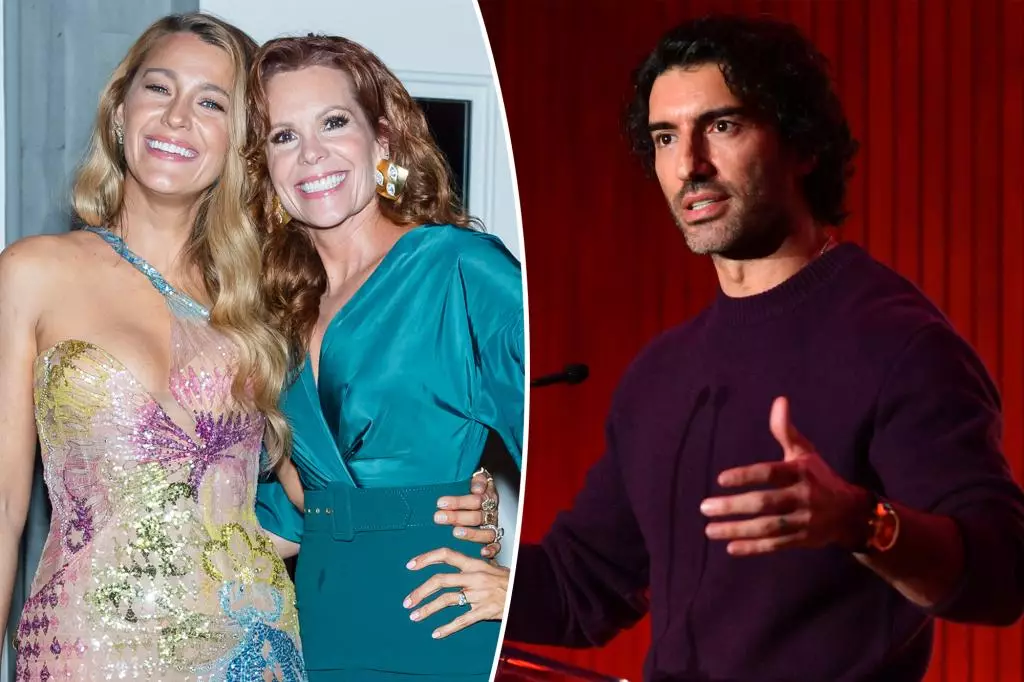In a world where public figures are often scrutinized under a harsh spotlight, Robyn Lively has made it clear that she stands unwaveringly by her sister, Blake Lively, during an increasingly troubling time. The backdrop of this support comes after Blake filed a serious complaint against Justin Baldoni, alleging sexual harassment when they worked together on the film “It Ends With Us.” Robyn utilized her social media platform to express her stance, stating, “FINALLY justice for my sister @blakelively,” on Instagram, which highlights the familial bond and solidarity in times of adversity.
Robyn’s social media activity goes beyond mere words; she also shared multiple screenshots of a recent New York Times article detailing the allegations against Baldoni. By highlighting specific phrases, such as, “We can bury anyone,” it appears that Robyn is not only supporting her sister but also amplifying the message about the systemic issues women face within the entertainment industry. Her posts evoke a sense of urgency and reflect a broader conversation about the treatment of women in Hollywood, emphasizing the narrative that society often seeks to undermine their voices.
Blake Lively’s formal complaint against Baldoni reveals unsettling details about the dynamics on set during the filming of “It Ends With Us.” According to Blake, a series of meetings were convened in January to address Baldoni’s alleged inappropriate behavior. This included incidents involving the presentation of “nude videos or images of women” and disclosures concerning his personal “porn addiction.” These claims raise significant questions about professional boundaries and appropriate conduct in the workplace, particularly in creative environments where collaboration is key.
Adding to the gravity of the situation, Blake requested that an intimacy coordinator be present during scenes involving physical closeness. This request is reflective of a growing demand within the industry for safety measures that protect actors from harassment and ensure that intimate moments are handled with care and consent. The inclusion of stipulations such as “no biting or sucking of lip” without explicit permission underscores the necessity for consent and communication in any on-screen interaction.
In response to Blake’s allegations, Baldoni’s attorney has labeled the accusations as “categorically false” and claims they are intended to harm his reputation. The stark juxtaposition presented by the legal representatives of both parties invites deeper reflections on the legal landscape governing such accusations in Hollywood. The denial by Baldoni and the subsequent dismissal from his talent agency, WME, may indicate a significant shift in his career—one overshadowed by legal battles and public scrutiny.
Blake’s legal filing stands as a precursor to a potential lawsuit, raising questions about the implications of such claims not just for those involved, but also for the cultural narrative surrounding sexual harassment in the film industry. The ongoing saga encapsulates a clash between the desire for justice and the power dynamics that often protect perpetrators. Robyn’s public comments reflect a broader cultural shift, advocating for the voices of women to be heard, protected, and validated.
As the controversy unfolds, public reception of Blake has been mixed. While she faces criticism for past remarks deemed “mean girl” and for allegedly focusing on personal business interests instead of the film’s intended message on domestic violence, Robyn remains a steadfast supporter. In a poignant birthday tribute, Robyn remarked on the number of people who love Blake, contrasting the negativity with overwhelming positivity. This dynamic emphasizes the importance of family support systems amid public distress, reinforcing the idea that familial connections can offer some solace.
Ultimately, Robyn Lively’s vocal support for her sister during this challenging time speaks volumes about the power of sisterhood. It highlights not only the gravity of the allegations against Baldoni but also the importance of solidarity amongst women. In a climate where many still grapple with the consequences and implications of speaking out, Robyn’s actions serve as a reminder: support and love can be powerful catalysts for change. Through their shared experiences, both sisters contribute to an ongoing cultural dialogue seeking justice for women in every profession, particularly in an industry historically riddled with inequality.

